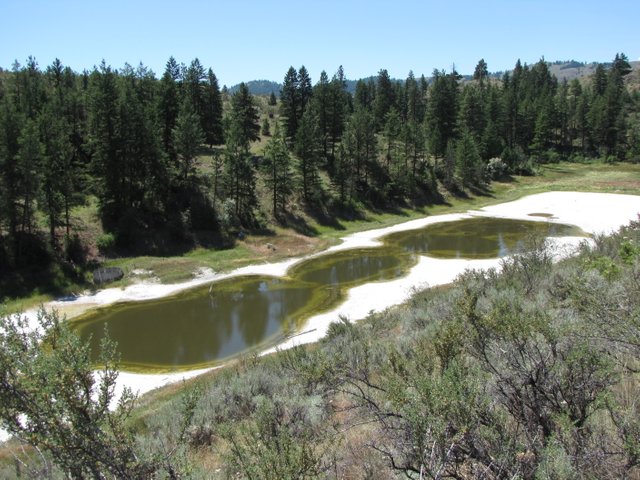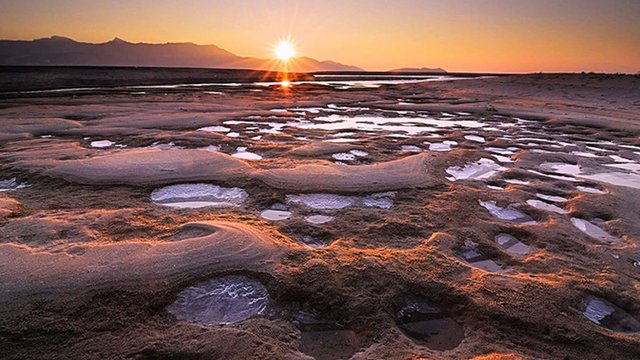Can bacteria survive in maritime hypersaline water?
One of the most promising places where extraterrestrial life could exist is, of course, Mars....
......Even with the fact that now the conditions on the planet look very unattractive and, one might say, lifeless. A big resonance in 2015 caused a message about the discovery of small streams on the planet with liquid water. Although it was not pure spring water, but a saturated saline solution, “reviving” with increasing temperature, the fact of its existence was very encouraging to astrobiologists.

Bacteria from Hoth Lake can successfully exist in the conditions of the "Martian cycle" - periodically drying brine.
Photo WIKI
At a recent conference of the American Society of Microbiology, researchers from Wichita University presented the results of their work on the study of the life of bacteria in extremely saline conditions. For the experiment, they took bacterial cultures from two genera Halomonas and Marinococcus, known for their ability to live in extremely saline lakes.
The researchers placed the dried colonies of microorganisms in a vessel in which the conditions of the Martian salt streams were modeled: the dry salt of magnesium sulfate from contact with moist air was gradually saturated with water until it turned into a liquid salt solution. As soon as this happened, even despite the high salinity of the environment, the culture of the bacteria came to life and began to develop. A similar cycle of drying and subsequent awakening experienced about half of the population of the colony.

Of course, such an experiment cannot be considered proof of the existence of live bacteria in the Martian brooks, because there, on the Red Planet, the temperature and the chemical composition of the “brine” are different.
On the other hand, we do not know how the Martian forms of life could evolve (if they did exist) in order to adapt to such conditions. Therefore, the researchers studied the very fact that bacteria can exist in a periodically drying concentrated salt solution.

The result was positive - terrestrial bacteria can cope with such an ordeal, which suggests that their potential Martian "relatives" can also. If they are, of course.